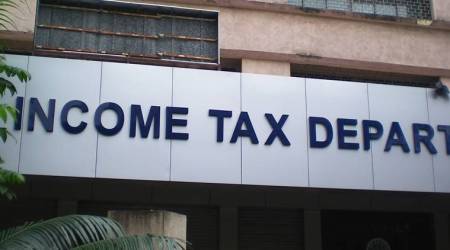 Pune university’s Vice-Chancellor Dr N R Karmalkar, at Idea Exchange. Pavan Khengre
Pune university’s Vice-Chancellor Dr N R Karmalkar, at Idea Exchange. Pavan Khengre
SUNANDA MEHTA: Despite its illustrious history and position among the top universities in the country, why have international rankings always evaded the Pune University?
Karmalkar: No, I don’t think so. The concept of rankings is recent. There was no measuring system in the past to record the rise and fall of a university. About international rankings, initially, we were a little shy about participating in the survey. A couple of years ago, we decided to participate in the more standard ranking systems like Times Higher Education Survey. We did fairly well.
I believe that rankings should depend on the progress of the students and what happens to the product (students) after it leaves us. Every product (student) is gauged on its saleability, but there is no survey to judge them. They just ask who are doing PhDs or have gone to other varsities. I had mentioned it to the minister of human resource development.
ANURADHA MASCARENHAS: While we are talking about research, don’t you feel that the overall quality of research work has gone down?
Karmalkar: This has something to do with the Annual Performance Index (API). Just to get a good API; every other person has started a journal and start publishing research papers as it is related to promotion and career growth. But, recently, the MHRD announced that it is no longer linked.
For quality control, at Pune University, we have specific guidelines on research. I had asked Professor Bhushan Patwardhan, along with another faculty member, to prepare a list on the same. It’s not about preparing a list, but the journal, the citations and how many times it is referred hold equal relevance. We had submitted a proposal to UGC, which was approved. I agree we may not be publishing in top journals, but compared to other universities, we are certainly better off.
ALIFIYA KHAN: While research works are getting published, not many are filing for patents. Why is that?
Karmalkar: It has to do with the mindset. The API gave more importance to how much citation the journal has, in which a research paper is published. Earlier, patents were not given enough emphasis. Hence, people didn’t bother. Even we have an IPR cell but, soon, it became dormant. However, today, the debate has moved from research to IPR and filing patents.
I keep questioning myself: the research is happening but what is its utility for society? And we are moving in that direction.
Partha Sarathi Biswas: Many student organisations have complained about lack of transparency in revaluations. The exam department has remained a sore point; most students’ complaints originate from there. Even the CAG reports have pointed fingers at this department.
Karmalkar: Yes, it has remained a sore point. The Agarwal committee had pointed out the automation of exam department, but for such a large population, we cannot do it on our own. That was why we had appointed an outside agency. But over a period of time, they took over.
For example: for students, getting the transcript on time is most crucial, most of the admissions in foreign universities depend on it. However, someone once fixed the upper limit at 3 months, and the practice is still on. It takes just 10-15 minutes. I found that the outside agency appointed had realised the weak point of the university and now most of the departments are dependent on them. These people are now showing their tricks and holding some of the data to themselves.
Alifiya Khan: If you have identified the cause, why can’t we change the system?
Karmalkar: I am doing it, but it has to be done in a phased manner, or it will go the way of Mumbai University. Each department needs to get audited and we need to understand where integration and co-ordination is required, where linkages are not happening. For that, again, I have appointed a third party.
Alifiya Khan: The statutory bodies were to be formed within nine months of the new Maharashtra Public Universities Act coming into force. The deadline is over and we are still drawing up electoral rolls.
Karmalkar: True, the procedures were not well defined. During the electoral rolls, we came across certain rules.
For example: married women, from an older generation, don’t have a marriage certificate and their name is now changed. However, we want both the degree and marriage certificate. It created a little chaos. Besides, we had to keep postponing the last date of enrolment, which delayed the process.
Alifiya Khan: When you took over, you claimed satellite and sub-centres were your priorities. We do have sub-centres, but they are not fully functional.
Karmalkar: True, it has been reduced to buying a piece of land and leaving it. At present, we have sub-centres but they are functioning like post-offices — just collecting the correspondence and sending it to the main varsity. Fortunately, the new law makes a provision for it, like appointment of a director. I don’t mind paying the salary. These centres should function as an independent centre. Like for Nashik: all the 150 affiliated colleges in that region should be checked there.
Garima Mishra: Pune University was supposed to implement the credit-based system, but is still facing issues. Your comments?
Karmalkar: The system has always been there, as we have a large number of students preparing the timetable is difficult. Actually, credit system is free shopping for students — 75 per cent from core courses and 25 per cent from any other course. But, again, there are barriers, which system doesn’t allow.
For example: I wanted a student doing research work in environment sciences, who was from the law faculty, to study environment law and get registered in environmental sciences department. But the system didn’t allow, since law comes under humanities and environmental science is a science faculty. On the one hand, we are saying that these barriers should go away and there should be an inter-disciplinary approach, but in reality, the work is not getting done.
Amitabh Sinha: The central government announced 20 top world-class universities; will Pune University be one of them?
Karmalkar: I am confident we will be one of them. Based on our rankings in the NAAC and NIRRF, we are amongst the top 20 universities in the country. If we look at student progression, research, patents, we are performing the best.
Amitabh Sinha: If that happens, how would things change for the varsity?
Karmalkar: It means complete autonomy for the university — from recruitment process to money — with little intervention from the state government.
Amitabh Sinha: Recently, the government moved to restrict the number of PhD students a guide can take. Do you think that was the right decision? Since, in India, a guide has far more students than international standards.
Karmalkar: The restriction shouldn’t come from the government; it should come from an individual. As a professor, I can take eight PhD scholars, whereas I have three. Maximum three is what a professor should take. It had become a fashion to go for PhD. The real reason was that people were not getting jobs, so this came as a stop-gap arrangement, since it offers a stipend or fellowship.
Alifiya Khan: You have world-class institutions such as IISER and C-DAC, on campus. Why have there been no collaborations with them? Other universities have taken the chance.
Karmalkar: I think it is lack of dialogue. But I have initiated it. Especially with IUCAA, where we are talking about an MSc programme. Research is happening on an individual basis, where one person from SPPU teams up with someone from IISER. But, as teams, yes it hasn’t happened.
Sunanda Mehta: At one time, we had the highest number of foreign students in Pune, now Delhi University has taken over. What happened?
Karmalkar: This has become a business — a marketing strategy. We have not yet gone into the market, we haven’t reached out to them. Now, agents are approaching students, convincing them to get courses in particular universities. We have tried being ethical and never entered the competition.
Also, a little control has been taken over by the government and a lot of filtration has happened. There is a perception gap. Besides, our website is clumsy and difficult for an outsider. I am working on all these issues.







